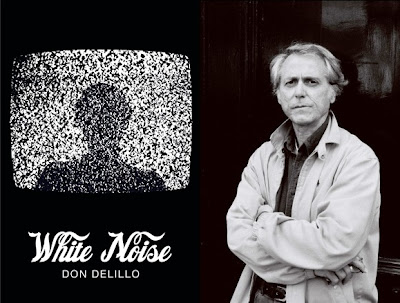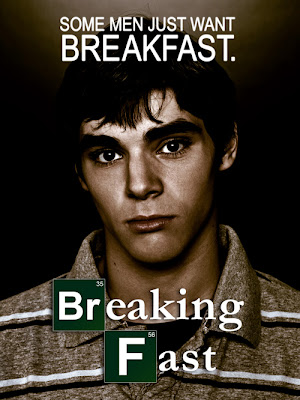A powerful novel executed with astounding control, White Noise is that rare kind of work whose message will never age (contextual pun somewhat intended).
I'm ashamed to admit that prior to picking up White Noise on an impulse, I hadn't heard of Don DeLillo. I was aware of the names of some of his other works, namely Cosmopolis, but if asked I wouldn't have been able to match an author to the novel.White Noise takes place in and around a surrealist North American College, named 'The College On The Hill' and is told from the point of view of Hitler Studies expert and tutor Jack Gladney. Jack lives with his fifth wife, Babette, and their four children, some of which are his, some of which are from Babette's previous relationships. Jack has various minor conflicts to overcome in his life, such as his relationships with his family and friends and his frustration over not knowing how to speak German despite being the foremost figure in the his field of study. But the primary conflict is an internal one; Jack is terrified of dying. He frequently obsesses over the nature of his life and how he is effectively waiting to die, as well as dwelling on the topic with Babette in the form of blackly comic pillow talk. And all this becomes magnified when a big problem arises; a train car containing the chemical 'Nyodine D' explodes a little way from Jack's hometown, releasing a toxic cloud that's headed his way. In the wake of this, Jack is finally forced to come head-on with his obsessive fear of death.
The first part of the novel could be perceived as being absent of any forthright plot, as it's really an extensive introduction in itself to Jack's life, as well as introducing some of the other topics that novel examines, such as token intellectualism in the academic community and the consumer culture that Gladney finds himself becoming embroiled in. Considering that White Noise was first published in 1985, it isn't difficult to see why it brought DeLillo to international prominence amongst the Postmodern movement; a lot of the ideas involved are way ahead of their time. DeLillo seems to have a gift of ironic observation, undoubtedly being able to see things that, at the time, most people would have been completely unaware of. In describing various occurrences in his daily life, there's also a wryness and a genunity to DeLillo's writing that is to be envied; it's that well-written, to the point that Jack Gladney becomes very much convincingly real as a person.
From the synopsis alone it could be assumed that the plot concerns Jack's fear of death before focusing entirely on 'The Airborne Toxic Event' (from which Part Two derives it's name) for the remainder of the novel's duration. Against expectations, the event lasts for perhaps a fifth of the novel. With admirable ingenuity, DeLillo shifts the narrative to depicting what happens in the shadow of the event, as post-calamity life kicks in and Jack has to deal with being exposed to said-radiation, and the knock-on possibility of his own demise. I won't give any more away with regards to the plot, because the finale is a real treat in terms of shear story-telling brilliance. I will, however, mention that it later touches upon the themes of religion, infidelity, pharmaceuticals and even the prospect of murder.
At it's heart, this is a wonderful novel. While it does have black comedy in heavy abundance, behind it all is an honest message about seeing death as an inevitability, and accepting it rather than dwelling on the idea alone. Plainly put, White Noise is one of the most well-written works I've had the pleasure of reading in quite some time, and I would unquestionably recommend it.












